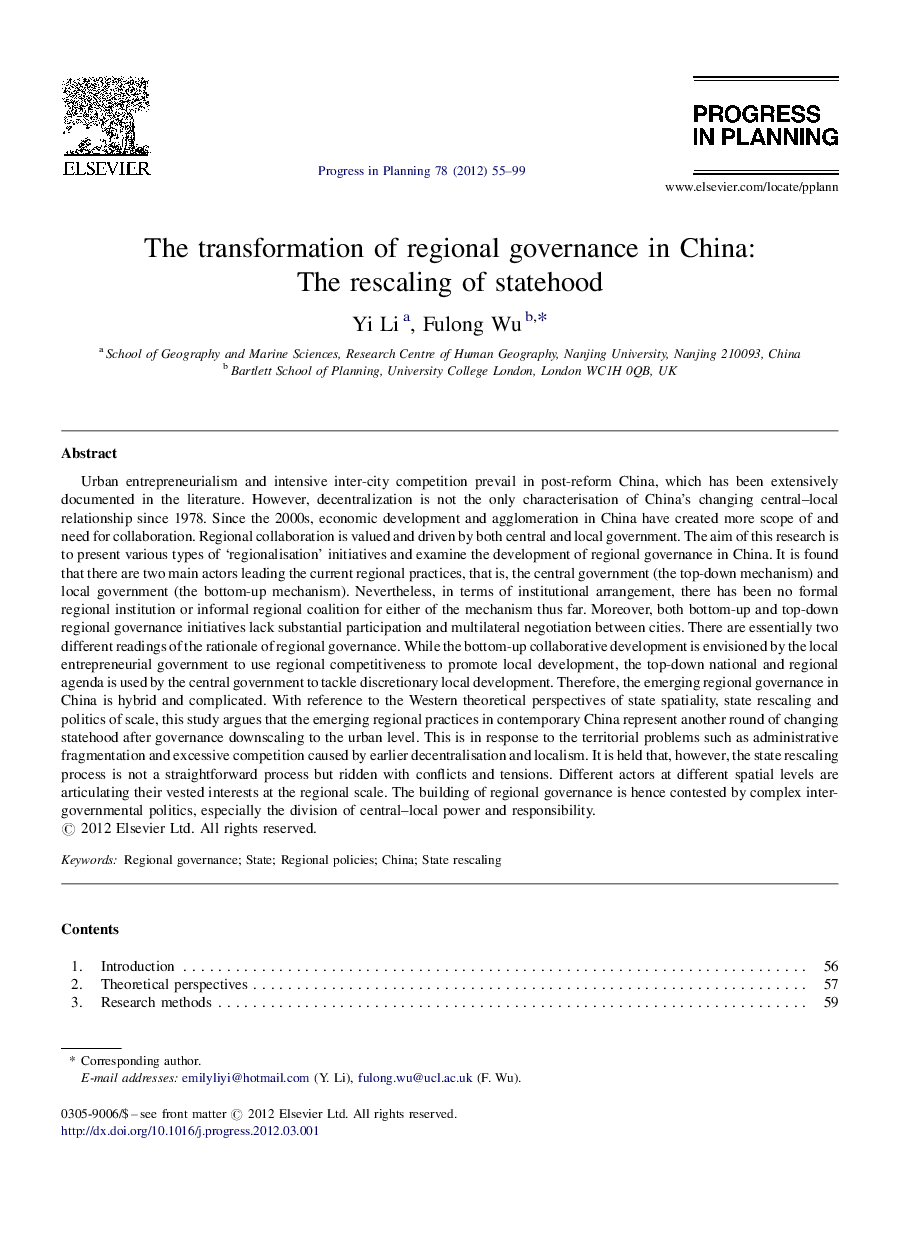| کد مقاله | کد نشریه | سال انتشار | مقاله انگلیسی | نسخه تمام متن |
|---|---|---|---|---|
| 1050890 | 945892 | 2012 | 45 صفحه PDF | دانلود رایگان |

Urban entrepreneurialism and intensive inter-city competition prevail in post-reform China, which has been extensively documented in the literature. However, decentralization is not the only characterisation of China's changing central–local relationship since 1978. Since the 2000s, economic development and agglomeration in China have created more scope of and need for collaboration. Regional collaboration is valued and driven by both central and local government. The aim of this research is to present various types of ‘regionalisation’ initiatives and examine the development of regional governance in China. It is found that there are two main actors leading the current regional practices, that is, the central government (the top-down mechanism) and local government (the bottom-up mechanism). Nevertheless, in terms of institutional arrangement, there has been no formal regional institution or informal regional coalition for either of the mechanism thus far. Moreover, both bottom-up and top-down regional governance initiatives lack substantial participation and multilateral negotiation between cities. There are essentially two different readings of the rationale of regional governance. While the bottom-up collaborative development is envisioned by the local entrepreneurial government to use regional competitiveness to promote local development, the top-down national and regional agenda is used by the central government to tackle discretionary local development. Therefore, the emerging regional governance in China is hybrid and complicated. With reference to the Western theoretical perspectives of state spatiality, state rescaling and politics of scale, this study argues that the emerging regional practices in contemporary China represent another round of changing statehood after governance downscaling to the urban level. This is in response to the territorial problems such as administrative fragmentation and excessive competition caused by earlier decentralisation and localism. It is held that, however, the state rescaling process is not a straightforward process but ridden with conflicts and tensions. Different actors at different spatial levels are articulating their vested interests at the regional scale. The building of regional governance is hence contested by complex inter-governmental politics, especially the division of central–local power and responsibility.
► The first systematic review of the recent changes in regional governance in China.
► We attempt to link the literature on state rescaling with Chinese practices.
► We highlight the ‘re-centralization’ of governance seen in China in recent years.
► Our perspective on regional governance as a rescaling of Chinese statehood is novel.
Journal: Progress in Planning - Volume 78, Issue 2, August 2012, Pages 55–99